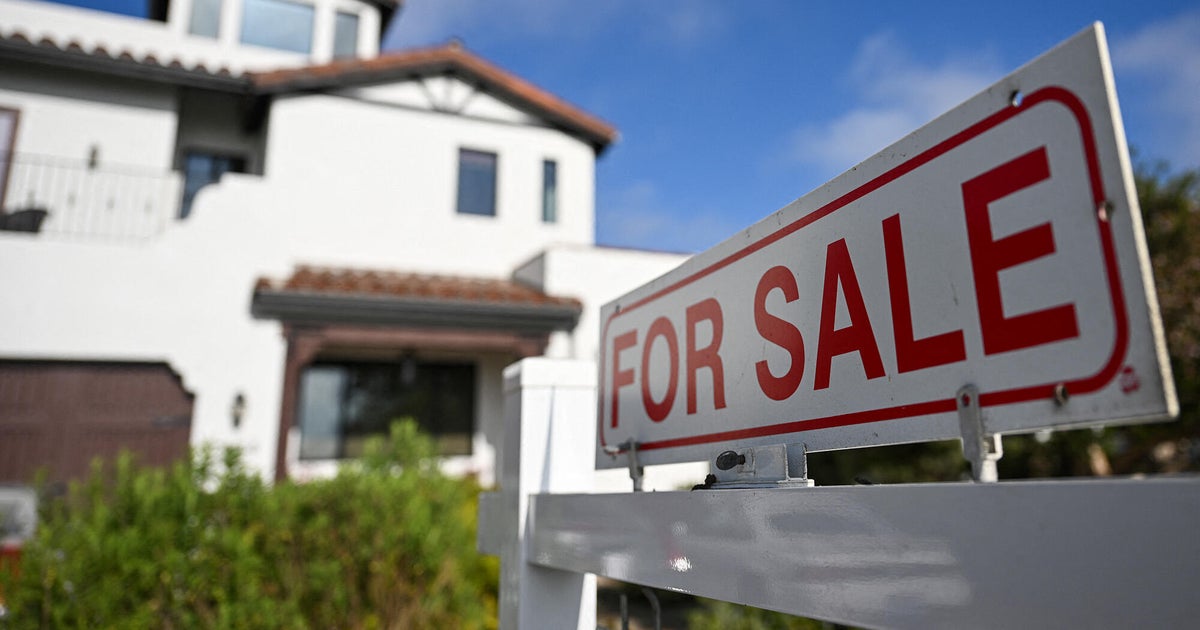Bay Area company selling "tariff-free" mattresses
It's a busy morning at the Mancini's Sleepworld warehouse located in Livermore. Crews are unloading mattresses they had ordered from their manufacturers, the majority of them based in California.
"Over 80% of our floor is based on products that are here in the U.S. that are manufactured here," Brett Snyder, the CEO of Mancini's Sleepworld, told CBS News Bay Area.
Mancini's Sleepworld has been a Bay Area-based mattress company for more than 50 years. Snyder said their mission is to always have a U.S.-based supply chain and that the majority of their manufacturers are based in California.
While the goal is to be U.S.-based, raw materials like foam and wires for their products are imported from Asia.
"It's absolutely forced us to look at every one of our suppliers and say, 'hey, are we able to deliver the best value to our consumer?' And in some areas, we have made some of the shifts into some of our future buying," Snyder said.
He said with triple-digit tariffs on Chinese goods and a base 10% on goods from other countries, Snyder is having to pivot quickly.
"We recognized there was a need to diversify the supply chain and not just be anchored in the Asian countries. So, not only did we look heavier into different countries within Asia, but we also looked at India, Pakistan and some other locations," he said.
He also added that they still have some time before price hikes, as his vendors give him a 60-day notice.
"At least for the next 60 days, we know we're locked in on price. However, we have notification from a number of different manufacturers of mattresses that as their cost goes up, over the next 60 days, there will be an increase in price," he said.
"They do purchase some raw materials from overseas, things like wire and fabric come from overseas. And so that part of the supply chain has been impacted, but we're fortunate that we're able to hold our prices for the next 60 days," he added.
In the face of volatility, there is also opportunity. The company has marketed a "tariff-free clearance sale," comprising of discounted mattresses as they had stocked up on more than 5,000 mattresses before the trade war escalated.
"It's part of why we're offering the tariff-free promotion that is going on because we brought in so much inventory in advance to be prepared, knowing that there were some of these changes," Snyder said.
This response from business leaders is something that one local economist is calling a "newer reality."
"Seeing price reductions and seeing businesses advertise those aggressively, that fits perfectly into the economy where it is now," Christian Roessler, economics associate professor at Cal State East Bay, told CBS News Bay Area.
"Uncertainty is not something businesses like. Policy uncertainty, so the response you're going to expect is they're going to respond cautiously. They might hold off on investments they're going to make, they might, to some extent, hold off on reordering products if they are not sure the demand is still going to sustain them," he added.
Roessler said that with economic uncertainty comes potential repercussions for longstanding businesses.
"I think there's a lot of confusion out there right now. People don't know just when and what magnitude these tariffs are going to impact them. There's a question whether suppliers are going to reduce their prices in order to lower the impact on the retailers? Whether that happens is going to differ from industry to industry," he said. "To some extent, it's going to be a reduction of profit margins for the businesses. And we're not going to see the whole impact of the tariffs. But prices will be going up. And repercussions in the economy, it might also affect wages."
Furthermore, the economist said that many of the prices consumers are seeing in stores and online are already impacted by recent tariffs.
"The impact of the tariffs is already here. When suppliers or businesses know that they're going to have to pay these tariffs, they don't wait. Prices don't wait to go up until the tariffs actually hit," he said.
In the meantime, Snyder said he is going to try to keep costs low while remaining profitable, even during these unpredictable times.
"These are made in the Bay Area. These are made in Richmond," Snyder said, pointing to some of the mattresses on the sales floor.
"How do we keep Mancini's competitive, not just now but into the future? It's making sure that we do have more than one choice. Because we only have one choice of one supplier coming out of one country, then you've really narrowed down and pigeonhole yourself. Look at long-term sourcing, make sure we got sources that come out of multiple countries."







